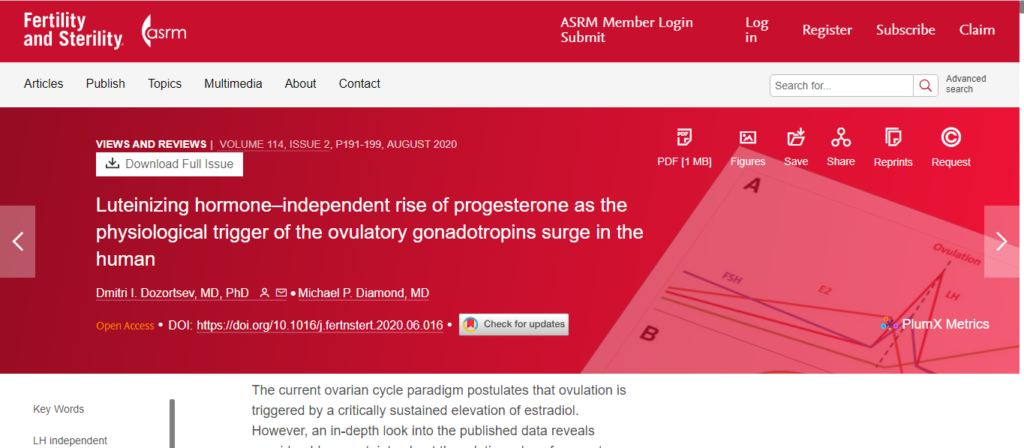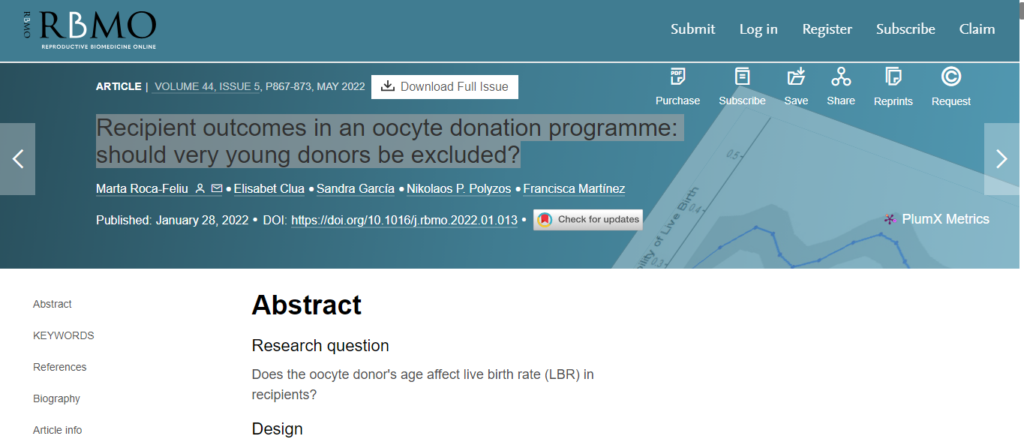Meta Title: Miscarriage May Be Avoided with Preimplantation Embryo Testing
Meta Description: For women who suffer repeated miscarriages and failed pregnancies, PGT can increase the chances of successful pregnancies with IVF.
In vitro fertilization (IVF) is a great resource for women who struggle to get pregnant, but it can also help women who struggle with staying pregnant. Some women can get pregnant without medical intervention but suffer from frequent miscarriages and are unable to carry their pregnancies to term.
In this case, IVF with embryo testing allows fertility specialists to test an embryo for potential abnormalities, genetic issues, and chromosomal errors before it is implanted into a woman’s uterus. This testing gives the pregnancy a much higher chance of implanting successfully. The chance of pregnancy can increase to 70 percent using preimplantation embryo testing.
One miscarriage can be devastating, so women who experience repeated miscarriages can feel hopeless. However, with embryo testing, these women can have a chance at successful, full-term pregnancies with dramatically reduced chances for miscarriage.
Why so many pregnancies are lost? Are Pregnancy Statistics So Poor?
About 20 percent of pregnancies are unsuccessful. Women of all childbearing ages are affected by this statistic. For young women around 20 years old, over half of the failures to establish viable pregnancies are due to chromosomal errors that exist in embryos. Women who are 40 years old are at risk for high-risk pregnancies and chromosomal errors are responsible for about 75 percent of those failed pregnancies.
Pregnancy loss is a tragic and difficult experience for any woman to go through. Only about 30 percent of fertility events end in pregnancy. However, of the 70 percent of failed fertility events, most go undetected. Pregnancies in early stages that fail often do so before a woman ever misses a period, so there is no chance for her to assume she is pregnant.
Unfortunately, these pregnancy loss statistics are so high because certain processes of cell division create embryos prone to errors and chromosomal abnormalities.
- Meiosis causes sex cells to divide to produce gametes (eggs) — sometimes meiosis can produce eggs with errors like too few or too many chromosomes.
- Mitosis is another form of cell division where cells are split and duplicated after fertilization — mitosis is also prone to errors and can produce chromosomal abnormalities.
When embryos contain errors and chromosomal abnormalities, pregnancies are far more prone to experience difficulties. Depending on what chromosomes are affected during errors in meiosis and mitosis, embryos are often rendered unviable, which leads to failed pregnancies. When these pregnancies do continue to term, children can be born with chromosomal conditions and disorders.
Preimplantation Genetic Testing on Embryos Can Catch Problematic Abnormalities
Fertility specialists can test embryos before they are implanted during IVF to determine whether they have the chromosomal errors that lead to unsuccessful pregnancies. This process is called preimplantation genetic testing (PGT). Doctors can choose not to implant those embryos and instead implant viable embryos to give women better chances at successful pregnancies.
These preimplantation tests can identify several genetic problems that can affect pregnancy and cause:
- Failure of the embryo to implant
- Miscarriage
- Birth defects
As mentioned above, embryos can naturally fail to implant, and pregnancies can end in miscarriage. However, with these preimplantation tests, women have a much better chance at successful embryo implantation and carrying pregnancies to term.
Fertility doctors will perform embryo transfer on embryos that are unaffected by chromosomal error.
How Are Preimplantation Genetic Tests Performed?
In order to test embryos, fertility specialists must perform biopsies on a very small number of embryonic cells from three- to five-day-old embryos. Only about five cells need to be tested to get accurate results. The biopsied cells are then tested in a genetics lab and their genetic makeup is analyzed to gather preimplantation genetic diagnostics.
- Normal embryos are known as euploid embryos. Euploid embryos have the correct number of chromosomes—46.
- Abnormal embryos are known as aneuploid embryos. Aneuploid embryos do not have the correct number of chromosomes. There are a variety of abnormalities that aneuploid embryos can possess, including missing chromosomes, extra chromosomes, and variations.
Since doctors only transfer healthy and genetically normal embryos, there is a much lower chance that a woman who undergoes this testing before receiving her IVF will experience pregnancy loss. Additionally, if there are multiple healthy embryos, doctors can determine the sex chromosomes of the embryos, which will give a woman the chance to choose the sex of her potential baby.
PGT is a great tool for older women who wish to get pregnant. While women of all ages experience pregnancy loss, older women have a much higher chance of embryo abnormalities.
Embryos from a woman in her 20s will mostly be normal and healthy, but it is likely that only 25 percent of embryos will be normal for a woman in her 40s. While it may take more than one round of IVF treatments to produce several embryos for testing, older women can benefit greatly from these tests during the IVF process.
Who performs Embryo Biopsies Should Only Be Performed by Qualified Operators matters a great deal.
There are currently no universal standards for training that biopsy operators must undergo. Embryo biopsy is a very delicate and precise maneuver, so only the most qualified operators should perform this procedure.
When embryos are biopsied improperly, the embryo can become damaged. This will stop embryonic development permanently. Thus, a healthy embryo would potentially go to waste because of an unqualified biopsy operator’s error.
If you are undergoing IVF and opting for PGT, ensure your biopsy operator is highly qualified and skilled at the procedure. You want every chance at a successful pregnancy and there is no reason to risk damaging embryos.
At the Advanced Fertility Center of Texas, the world-renowned Dr. Dmitri Dozortsev performs embryo biopsies along with Mrs. Pei-Chi Tsai, whom Dr. Dozortsev personally trained.
Dr. Dozortsev is one of the developers of the embryo biopsy and recently made improvements to the procedure to lessen the potential impact on the embryo. His new development is called the Minimal Impact Embryo Biopsy.
Dr. Dmitri Dozortsev’s Expertise in Reproductive Embryology and Transitional Fertility
Dr. Dozortsev is one of the most accomplished and well-known names in the fertility industry and has made several paradigm-shifting discoveries in the world of reproduction, including intracytoplasmic sperm injection (ICSI), an advanced IVF fertilization method. He is the President of the American College of Embryology.
He is known as an expert in the field of human embryology. His research can be found in dozens of publications. One of his publications was profiled including by Nature, the number one scientific journal in the world.
In 2020, Dr. Dozortsev wrote three editorials for Fertility and Sterility, a leading fertility journal. One editorial is in the press this year. Currently, Dr. Dozortsev is the President of the American College of Embryology.
Dr. Dozortsev’s work has been recognized and praised by Robert Edwards, the British physiologist and Nobel prize in Medicine winner who developed IVF.
Dr. Dozortsev has helped create and grow several IVF programs known across the world. These include two major programs in Ghent, Belgium, and St. Petersburg, Russian Federation. He has assisted in improving Harvard Medical School’s IVF program as well as many others nationally and internationally in Holland, Italy, Brazil, and Israel.
In 2010, Dr. Dozortsev was honored in the opening of a new IVF unit in Haifa, Israel alongside the President of Technion (Israel’s Institute of Technology), and Israel’s Minister of Health.
He has several more fertility-related patents issued and pending in the following areas:
- Embryo biopsy
- Ovarian stimulation
- Collection, storage, measurement, and processing of DNA and semen samples
At the Advanced Fertility Center of Texas, Dr. Dozortsev is the director of the Reproductive Laboratories.
Consider Preimplantation Genetic Testing for IVF If You Have Suffered from Repeated Pregnancy Loss
Embryo testing can give you the chance at a successful pregnancy that you deserve. If you have experienced multiple failed implantations or miscarriages, consider PGT. A fertility specialist can help you start the family you have always wanted.
Give the Advanced Fertility Center of Texas a Call at (713) 244-8735 or schedule a consultation online.
Sources:
https://alabamafertility.com/recurrent-pregnancy-lossesrepeated-miscarriages-part-1/
https://www.urmc.rochester.edu/encyclopedia/content.aspx?ContentTypeID=90&ContentID=P02126
https://www.intechopen.com/chapters/54652
https://progyny.com/education/female-infertility/chromosomal-abnormalities-miscarriage/
https://extendfertility.com/preimplantation-genetic-diagnosis-and-screening-genetic-testing-for-embryos/
https://emedicine.medscape.com/article/273415-overview
https://www.genomicseducation.hee.nhs.uk/glossary/meiosis/
https://fertility.womenandinfants.org/treatment/preimplantation-genetic-testing
https://www.ncbi.nlm.nih.gov/pmc/articles/PMC3017325/
https://www.infertilityanswers.com/dr-michael-allon/
https://www.infertilityanswers.com/dr-dmitri-dozortsev/
https://www.nature.com/articles/news030804-14
https://americanpregnancy.org/getting-pregnant/infertility/intracytoplasmic-sperm-injection/


